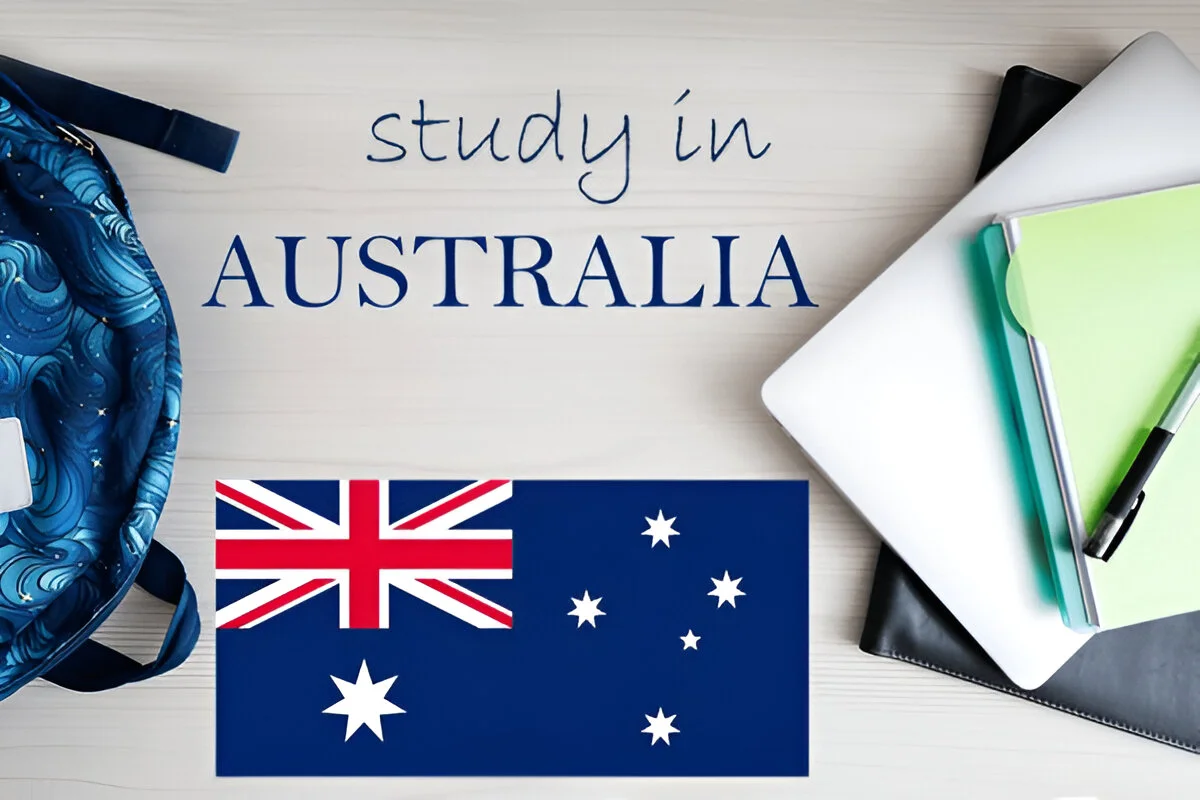
About Australia
Australia is the third most popular place for foreign students to go to school. Because Australia's education system has such a good image around the world, graduates are in high demand. Still, their prices of living and going to school are much lower than in the US and UK. Australia lets international students work up to 20 hours a week while they are there. People who moved to Australia from all over the world make it a very different place to live. International students can get scholarships from the Australian Government to go to colleges in regional areas. Australia is different from other countries because it lets international students study there and then work after they graduate. It is also known for its stunning natural landscapes, vibrant cities, and a high standard of living.
Australia is also a global leader in research, innovation, and technology, making it an ideal place for students pursuing degrees in areas such as healthcare, engineering, information technology, business, and environmental sciences.
Why Study in Australia?
There are many reasons that to pursue your education in Australia. Some of them are:-
- Globally Recognized Education: Australia's universities are some of the best in the world, and their degrees are recognised all over the world, giving foreign students great job opportunities.
- Work While You Study: International students can work part-time (up to 48 hours every two weeks) while they are in school and full-time during breaks. This gives them the chance to get work experience and pay their bills.
- Job Opportunities After Study: Students can apply for a Post-Study Work Visa (Subclass 485) after they graduate. This visa lets them stay in Australia and work for up to 4 years, based on their level of qualification, and there are ways to become permanent residents after that.
- Diverse and Welcoming Society: Australia is home to people from a lot of different cultures, which makes it a friendly and interesting place for foreign students.
- Research on New Ideas: Australia puts a lot of money into research and development, which gives students the chance to work with leaders in many areas and cutting-edge technology.
- A Safe and Friendly Place: Australia is a safe place for students to learn, live, and explore its cities and landscapes while getting a good grade on safety.
- Different Ways to Learn: Universities in Australia offer many different ways to learn, such as undergraduate, graduate, and vocational programs. This means that students can make their studies fit their job goals.
Eligibility Criteria to Study in Australia
You need the following things to be eligible to study in Australia.
- Academic Qualifications: For undergraduate courses, a secondary school completion certificate equivalent to the Australian Year 12 qualification is required. For postgraduate courses, a recognized bachelor’s degree or equivalent is typically necessary.
- English Language Proficiency: You will need to demonstrate proficiency in English through recognized tests like IELTS (minimum score of 6.0 to 6.5), TOEFL (minimum score of 79-90), or PTE (minimum score of 50-58).
- Proof of Financial Capacity: You must provide proof that you have enough funds to cover your tuition fees, living expenses, and return travel. The financial threshold may vary but is typically around AUD 21,041 for living expenses per year.
- Genuine Temporary Entrant (GTE) Requirement: You must satisfy the GTE requirement by demonstrating that you genuinely intend to stay in Australia temporarily for the purpose of studying.
- Health and Character Requirements: You may need to undergo a medical examination and provide police clearance certificates to prove that you meet health and character standards.
- Valid Passport: You must hold a valid passport for the duration of your study in Australia.
Steps to Apply to a University in Australia
Here’s how you can apply to a University in Australia.
- Make Your Decision on a Major and College: Finding the classes and schools that will help you achieve your academic and professional objectives should be your first step. Look into the admissions standards, course offerings, and tuition costs of different Australian universities.
- Take a Look at What You Need to Enter: Before enrolling in the course, make sure you can fulfil the language, academic, and any other prerequisites. Acknowledgement of English proficiency is typically demanded by universities (IELTS, TOEFL, etc.).
- Gather Your Required Documents: Collect all of the required paperwork, including recommendation letters, personal statements, academic records, and ESL test results.
- Upload Your Application: Fill out an application using the university's online application system. An application fee, which is non-refundable, may be required by certain schools. Submit your applications well in advance of the due dates.
- Obtain the Letter of Offer: The university will send you an offer letter, conditional or unconditional, after reviewing your application. The latter indicates that they do not want any additional paperwork or information from you.
- Take the Deal: A Confirmation of Enrolment (CoE) will be issued by the institution once you have accepted the offer and fulfilled all remaining requirements. A student visa application cannot be processed without this document.
- Subclass 500 Student Visa Application: Fill out your application for a Subclass 500 Student Visa with your CoE and any other necessary documents. Verify that you fulfil the visa's character, health, and financial conditions.
- Before You Arrive: Get a feel for Australian culture, book your flights, hotels, and travel insurance after your visa is greenlit.
Documents Required to Study in Australia
- In order to enrol in an undergraduate program, you must have a high school diploma or its international equivalent.
- Accepted tests of English competence include IELTS, TOEFL, or the PTE.
- Ensure that you have the finances to pay for your tuition, living expenses, and return transportation.
- You need to prove your intent to study in Australia for an extended period of time in order to meet the GTE criteria.
- As evidence that you are in good health and meet character requirements, you may be asked to submit a police clearance certificate and results from a medical examination.
- To study in Australia, you need a passport that is valid for at least that long.
- You will need the Certificate of Enrolment, which is issued by your university if you accept their offer, in order to apply for a student visa.
- Official transcripts of all degrees and certificates earned, including those from high school and college.
Living Expenses for Students in Australia
Location and way of life impact Australia's cost of living. Not including tuition, the typical student needs between 20,000 to 25,000 Australian dollars a year to cover living expenses. The usual dissection looks like this:
- The cost of housing can range from $450 to $1,200 per month in Australian dollars, depending on options like as on-campus housing, communal apartments, or individual rooms.
- Price range for food: 300–500 Australian dollars monthly.
- Cost: AUD 150-250 monthly for public transport.
- The annual cost of health insurance (OSHC) ranges from 500 to 700 Australian dollars.
- Extra: $400 to $500 (AUD) monthly (for things like entertainment, books, and personal costs).

Why Choose Nationize Visas for Australia Study Visa?
Securing an Australia Study Visa is a gateway to world-class education in a diverse and vibrant environment. At Nationize Visas, we are committed to making the visa application process smooth and hassle-free. Our team of experts understands the intricate requirements, such as proof of enrollment, financial support, and English language proficiency, and offers personalized assistance at every stage. Whether you're applying for an undergraduate or postgraduate course, we ensure your application is completed accurately and efficiently. With our in-depth knowledge of Australia’s immigration policies, we minimize the chances of errors and delays, helping you fulfill your study dreams with ease.
Benefits of Choosing Nationize Visas for Australia Study Visa
- Personalized support to meet eligibility requirements, including proof of enrollment in a recognized Australian educational institution.
- Comprehensive guidance in preparing financial documents, ensuring you meet the criteria for study expenses and living costs.
- Expert assistance in demonstrating English language proficiency through recognized tests, increasing your chances of visa approval.
- Step-by-step consultation on compiling the necessary health and character documents required by Australian immigration.
- Tailored advice for students applying for scholarships, improving your financial outlook and visa prospects.
- Continuous support, from pre-visa application to post-approval steps, including travel and accommodation advice.
- In-depth knowledge of the latest immigration policies to help you avoid common mistakes and process delays.
People Also Asked:
What is an Australia Work Visa?
An Australia Study Visa (subclass 500) enables international students to enrol in Australian schools, colleges, or universities for their studies.
Can I bring family members with an Australia Study Visa?
Yes, certain family members, like spouses and dependent children, can accompany you with proper documentation and approvals.
Can I work while studying on an Australia Study Visa?
Yes, visa holders can work up to 40 hours per fortnight during study periods and unlimited hours during vacations.
What documents are needed for an Australia Study Visa?
Documents include a Confirmation of Enrolment (CoE), financial proof, health insurance, and English language test results.
Who is the best consultant for Australia Study Visa in India?
Nationize Visas is a top consultant in India for Australia Study Visas, providing reliable support for every step of the application process.


